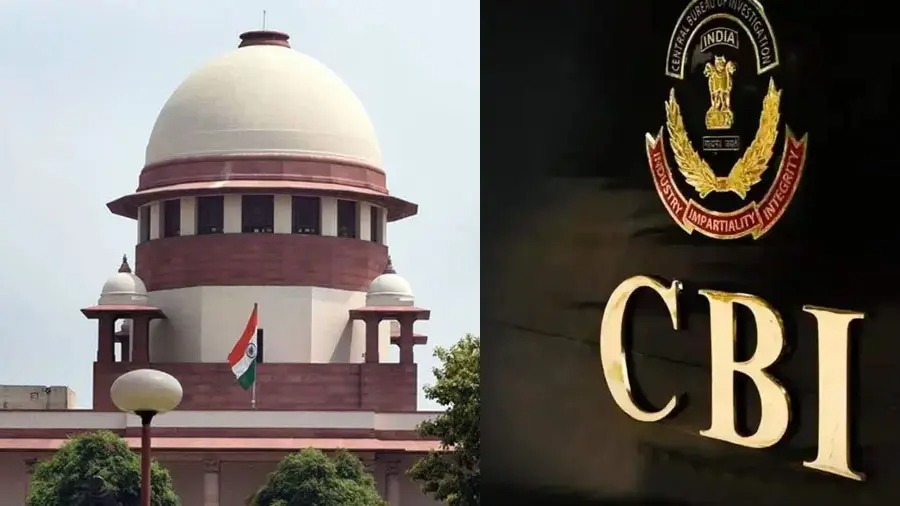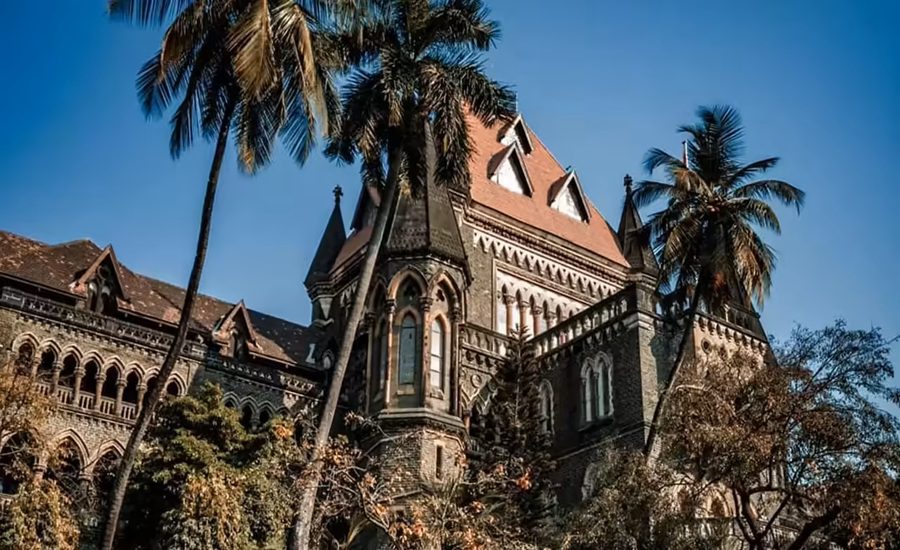Amitabha Dutta, J.@mdashThis is an appeal by the defendant No. 1 against a decree of affirmance passed by the learned Additional District Judge, 3rd Court, Alipore in a suit for a declaration of title, recovery of possession and mesne profits in respect of Plot Nos. 19 to 22 of Mouja Santoshpur, P.S. Barasat mentioned in ''Kha'' Schedule to the plaint. The four suit plots measuring 35 acre and Plot No. 18 measuring ''39 acre comprised a raiyati holding at a jama of Rs. 8/- recorded in C.S. Khatian No. 187 and it was held by the Sasmals under Rajendra Neogi, Tarak Neogi and Tarini Sur whose superior rent receiving interest was recorded in C.S. Khatian No. 184 as a jama of Rs. 10/- for 2.20 acre land held under Jadumadhab Chatterjee whose interest was recorded in C.S. Khatian No. 169 of Mouja Santoshpur. The Sasmals were in possession of the five plots separately by mutual arrangement. Shyama Charan Sasmal who had 8 annas share was in possession of Plot No. 18. The other four Sasmals viz. Dhananjoy, Gopal, Nalini and Panchugopal having 2 annas share each was in separate possession of the disputed plot 19 (08 acre), 20 (07 acre), 21 (11 acre) and 22 (.09 acre) respectively. The aforesaid position is disclosed by the entries in the C.S. records (Ext. 9 series).
2. The plaintiffs Subodh and Subal are the two sons of Dhananjoy. Their case is that they acquired the interest of Nalini from his three sons by a registered patta dated 9.11.1946 (Ext. 2), the interest of Gopal from his son Sadhan by a registered patta dated 12.9.1950 (Ext. 2(a) and the interest of Panchugopal by a kobala dated 10.2.1958 (Ext. 1) and came to possess the disputed plots 20, 21 and 22 and they inherited the interest of their father Dhananjoy in Plot 19. Thus they were in possession of the suit land in the four plots in dispute during all material period. It is alleged that the defendant No. 1 threatened to dispossess the plaintiffs from the suit land before the suit and actually took wrongful possession of the suit land on 19.8.61 by cutting jute crops grown by the plaintiff after the suit had been filed on 11.4.61.
3. The contesting defendant No. 1''s case is that the raiyati jote recorded in C.S. Khatian No. 187 ceased to exist sometime after the C.S. operations as the tenants gave up the land of the jote in favour of the landlords that the Chatterjee landlords put the jama of Rs. 10/- to sale in execution of a rent decree which was auction purchased by Kartick Neogi, who took delivery of possession of the lands of the jama including the suit land that Kartick settled the suit land with Ghyanamoni by a registered patta dated 13.3.55 (Ext. IX-1) and that the defendant No. 1 purchased the suit land from Ghyanamoni by a registered kobala dated 5.4.1961 (Ext.''B''). It is alleged that since then the defendant No. 1 has been in possession of the suit land and his vendor''s name has been recorded in the finally published R.S. record as raiyat in possession of the suit land.
4. The trial court has decreed the suit on the findings that the plaintiffs have succeeded in proving their title to the suit land and possession thereof during the material period till they were dispossessed by the defendant No. 1 on 19.8.61 when the suit was pending. The learned Munsif has held that the raiyati jama of Rs. 8/- recorded in C.S. Khatian No. 187 did not cease to exist and has been continuing that Kartick Neogi auction purchased the superior-intermediary interest of the jama of Rs. 10/- in rent execution in July 1954 and the sale was also set aside in June 1957 that Kartick had no possessory interest in the suit land and consequently Kartick''s lessee Ghyanamoni or her Vendee the defendant No. 1 had or had no interest therein. The entries in the relevant R.S. record are therefore, without foundation. The court of appeal below has concurred in the findings of the court of first instance and dismissed the appeal.
5. It has been submitted by the learned advocate for the appellant that the court of appeal below has committed the error of placing the onus on the defendant-appellant to prove the correctness of the entries in the relevant R.S. record (Ext. B) in favour of Ghyanamoni, Vendor of the appellant which was finally published after the objection raised by the plaintiffs u/s 44(1) of the West Bengal Estates Acquisition Act was dismissed. The appellate court ought to have placed the onus on the plaintiffs-respondents to rebut the presumption of correctness of the entries In the record of rights. He has referred to the decision in Rani Harshamukhi vs. Khitindra 47 CWN 662 and
6. In my view, the contentions raised on behalf of the appellant challenging the decree of the court below are not well founded although there can be no cavil at the well known principles of law laid down in the decisions cited on behalf of the appellant. The learned Judge has discussed the documentary and oral evidence adduced by the parties in support of their rival claims of title to and possession of the disputed land and appraised such evidence in arriving at his decision. It cannot be said that he has thereby placed the onus on the contesting defendant to prove the correctness of the entries in the relevant R.S. record finally published in or about 1957 (Ext. H).
7. In Rai Kiron Chandra Rai Bahadur vs. Srinath Chakraborty 31 CWN 135 the learned Judge Chakraborty, J. delivering the judgment of the Division Bench observed at page 142 as follows :
There cannot be any doubt that the entry (in the record of rights in favour of the plaintiffs) must be presumed to be correct unless the contrary is proved but when the matter is investigated by the Civil Court and the parties adduced their evidence on the point in controversy the entry loses its weight when the evidence discloses no foundation for it.
8. In this case there is unimpeachable documentary evidence of the registered pattas of 1946 and 1950 (Exts. 2 and 2(a) and cogent evidence of competent witnesses (P. Ws 4 and 6) to prove the continuance of the raiyati jama of Rs. 8/- comprising the four disputed plots and plot No. 18 and actual possession of the disputed plots Nos. 19, 20 and 21 by the plaintiffs before their purchase of the disputed plot No. 22 from Panchugopal by a kobala dated 10.2.58 (Ext. 1). Their subsequent possession of the four disputed plots till they were dispossessed by the defendant No. 1 on 19.8.61. by cutting jute grown by the plaintiffs has also been satisfactorily proved. The learned Munsif who examined the witnesses and observed their demeanour has preferred the testimony of P. Ws. 4 and 6 to that of D.W. 4 among the non party witnesses of possession. The court below has also taken the same view. Both the courts have not placed reliance on the version of P.W. 1 the plaintiff No. 1 that he paid rent but did not get dakhila ana have held that non-payment of rent does not have the" effect of cessation of the tenant''s interest in the holding. The concurrent findings of fact of possession not being perverse are final and cannot be disturbed in second appeal.
9. On the other hand the courts below have rightly observed that the defence plea that the raiyati jote of Rs. 8/- recorded in C.S. Khatian No. 187 ceased to exist sometime after the C.S. operations, as the tenants gave up possession to the landlords is extremely vague and there is no pleading or evidence as to the date or mood of the alleged cessation of the jote. It appears from the documentary evidence furnished by the defendant that the superior jama of Rs. 10/- was sold in rent execution at the instance of the Chatterjee landlords in June 1938 and purchased by one Nandalal Biswas. It was again sold in Rent Execution Case No. 56 of 1954 on 7.6.1954 and the sale was confirmed on 30.7.54 Ext. E). The auction purchaser Kartick Neogi took delivery of possession of the auction-purchased property on 17.3.55. He purported to settle the suit land with Ghyanamoni by a registered patta dated 23.3.1955 (Ext. D(1). Thereafter the said auction sale was set aside in Misc. Case No. 14 of 1956 by a compromise on payment of Rs. 185/- to the auction purchaser Kartick Neogi on 15.6.1957 (Exts. 5 and 7). It has been urged that as Ghyanomoni did not get notice of the application for setting aside the sale the order thereon is not binding on her. But even in that case the order setting aside the sale is not a nullity and if the person affected does not impugn the validity of the order in a proceeding directed against it he cannot attack it collaterally in any other proceeding (M.L.A.I. Co. vs. Darapali 47 CWN 539 D.B.). The same principle will apply in this case although the application was u/s 174(3) of the Bengal Tenancy Act which is peri materia with order 21 rule 90 of the C.P. Code. So the order setting aside the sale is not assailable on behalf of the defendant. The effect of the order is to remit the parties to the position in which they stood before the date of the sale (
The appeal, therefore, fails and is dismissed. No order is made as to costs.

